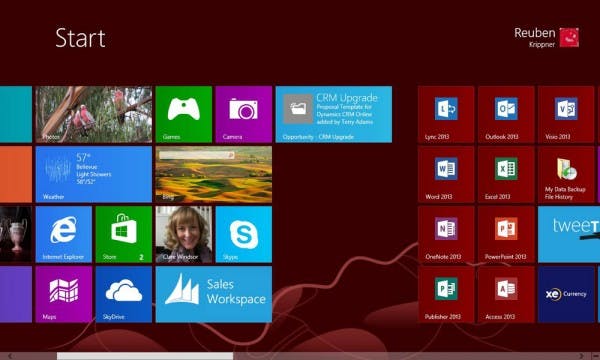To say that America suffers from a trust deficit these days is an understatement. Many of the largest American institutions don’t seem to be on the side of regular citizens. This goes for corporate America as well as government, media, and other institutions. Creepy actions perpetrated by some corporations have continued despite the lessons we all should have learned from the financial crisis in 2008, and certainly have led to a sad outcome: the sense that many corporations are bad.
When it comes to corporate trust issues, investors should be aware that they can pay a high price — literally — for putting money into companies that show signs of untrustworthiness. Any financial news source on any given day will disseminate examples of things that make you go “Hmm.” Take corruption; a huge corporate entity was implicated in such shenanigans just yesterday.

Microsoft Corporation (NASDAQ:MSFT) is being investigated by the Department of Justice and the Securities and Exchange Commission. Some of its business partners allegedly bribed officials to grease the wheels for software contracts in China, Italy, and Romania.
Although word has it that the investigation is preliminary and Microsoft Corporation (NASDAQ:MSFT) hasn’t been officially accused of any wrongdoing, such probes aren’t even that unusual in corporate America. Wal-Mart Stores, Inc (NYSE:WMT) is still under investigation for similar concerns in Mexico and other countries. In January, even more damning evidence came to light in that case. Emails were released indicating that CEO Mike Duke and other Wal-Mart Stores, Inc (NYSE:WMT) executives knew about the bribery as far back as 2005. They had previously claimed they had no idea about such activity.
According to The Wall Street Journal, right now, dozens of investigations related to the Foreign Corrupt Practices Act, which bans bribes to officials overseas, are being conducted.
Ranking for trust
Of course, corruption and bribery aren’t the only factors that drain trust from investments. Corporate managements and boards too often make headlines for plenty of other factors that remove confidence from our portfolios.
Take outrageous CEO salaries for abysmal business and stock performance. Or managements that make cost-cutting decisions to juice short-term profits, which can and often does lead to disasters, long-term value destruction, and deterioration of competitive advantage. Once in a while, they even massage their numbers using accounting loopholes, or worse, perpetrate outright fraud.
Not all companies’ managements are untrustworthy, though, even if critical thinking is crucial for the investment toolbox these days. And when companies are good, they’re really good, boosting value for shareholders as well as everyone else they touch, including the overall economy. (The recent book Conscious Capitalism, by John Mackey and Raj Sisodia, is a good introduction to thinking this way; my review is here.)
Meanwhile, there are plenty of research tools to help us find the companies that put trustworthiness high on their list of priorities.
Forbes released its list of The Most Trustworthy Companies this week, ranked using corporate governance experts GMIRatings’ accounting and governance (AGR) score. The organization scoured more than 8,000 companies and revealed its top 100. These companies are noteworthy not only for their use of good, conservative accounting, but also boast good corporate governance policies and management.
To that end, the highest rated companies have the least possibility of negative — and costly — events like lawsuits, SEC investigations, bankruptcy, and good old-fashioned lousy stock returns.
Many of the companies GMIRatings indicated as worthy of high degrees of trust don’t have high degrees of name recognition. Of the large-cap companies listed, Cincinnati Financial (NASDAQ:CINF) received the only perfect 100 AGR score.
Entegris (NASDAQ:ENTG) and Mueller Industries (NYSE:MLI) both received AGR scores of 99 among the mid-cap companies highlighted. Of small-cap companies on the list, Daktronics (NASDAQ:DAKT), First Merchants (NASDAQ:FRME), and Sykes Enterprises (NASDAQ:SYKE) all racked up perfect 100 scores.
Trust, but verify
Such lists give investors who are looking for the least risky companies some grist for the research mill. Last week, I covered the corporate CEOs enjoying the highest employee approval according to Glassdoor data. Here at the Fool, we recently launched our first-ever list of The 25 Best Companies in America.
While there’s a trust deficit these days — with good reason — there’s also a bumper crop of an all-important resource: information. For investors, access to information can most certainly help steer portfolios into more positive directions, and help avoid the most negative impacts.
No list is the be-all and end-all to perfect investment knowledge; as long as we’re talking “trust,” let’s also remember the old saying: “Trust, but verify.” Still, using the informational resources out there in order to search out the best companies and shun the scandal-ridden and untrustworthy ones goes a long way to protecting portfolios — and may even encourage corporate managements to do better.
The article How to Invest Despite the Trust Deficit originally appeared on Fool.com.
Alyce Lomax has no position in any stocks mentioned. The Motley Fool owns shares of Microsoft.
Copyright © 1995 – 2013 The Motley Fool, LLC. All rights reserved. The Motley Fool has a disclosure policy.